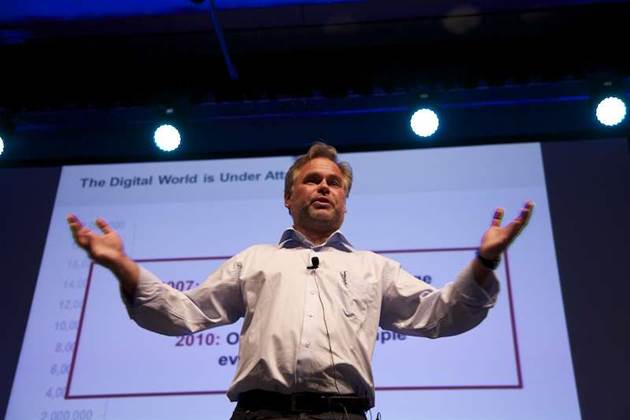Australia is about to sign a failed decade-old global treaty to combat cybercrime, according to the head of Russian security firm Kaspersky.

Eugene Kaspersky rubbished the EU Convention on Cybercrime and called it a failure because it had and would not unify cybercrime laws across signatories.
He also doubted that countries including China would ever ratify the treaty which would be a critical blow to its stated aims of reducing and combating cybercrime.
"Do you think it's real that if a government computer in Russia is infected, that they will let the US in? Or that the White House will let Russia in? And then China or Latin America? Forget about it," Kaspersky told SC Magazine.
"It hasn't worked in 10 years."
Australia had earmarked plans to amend local laws by July in preparation to accede the treaty.
The treaty had been previously criticised on similar grounds. Hamadoun Touré, director of he United Nation's International Telecommunication Union (ITU), flagged problems with the broader adoption of the treaty outside of the EU in 2009 (pdf).
The ITU developed its own International Multilateral Partnership against Cyber-Threats (IMPACT), to which Kapersky and Symantec are partners.
Privacy groups have also attacked the proposal on the basis that the need to share data could lead to violations by signature nations.
Internet Interpol
The world still needed a global solution to cybercrime. For Kaspersky, the answer lay in the creation of verified federated identity, unified prosecution laws, and a global police unit.
"The traditional Interpol is not designed for the internet," he said.
"In the case of cybercrime, there needs to be police forces from many countries, which is much more complicated than traditional crime.
"There is a need for a new police organisation, or one created within Interpol."
The entity would "own the process of investigation", but cybercrime laws would also need to be amended across countries.
The process that includes a global internet passport could take another ten years, during which time online crime will continue its "global age", Kaspersky said.

_(28).jpg&h=140&w=231&c=1&s=0)


_(20).jpg&h=140&w=231&c=1&s=0)





 iTnews Benchmark Awards 2026
iTnews Benchmark Awards 2026
 iTnews Executive Retreat - Security Leaders Edition
iTnews Executive Retreat - Security Leaders Edition
 iTnews Cloud Covered Breakfast Summit
iTnews Cloud Covered Breakfast Summit
 The 2026 iAwards
The 2026 iAwards












_(1).jpg&h=140&w=231&c=1&s=0)



